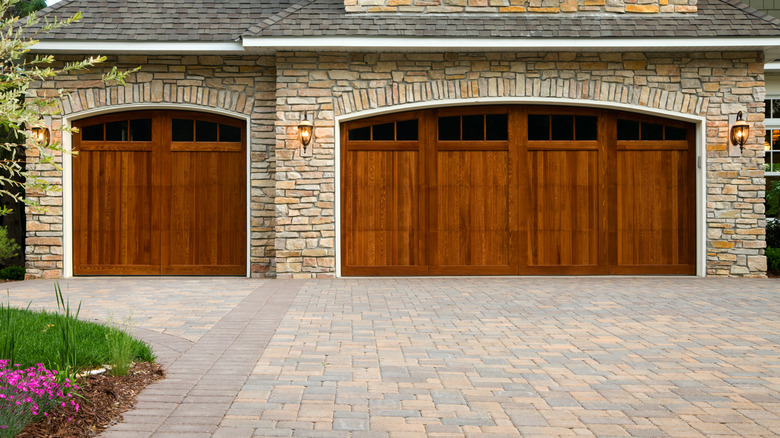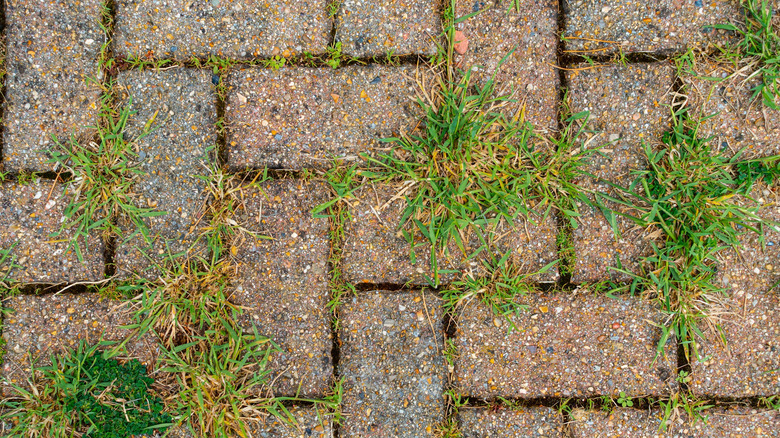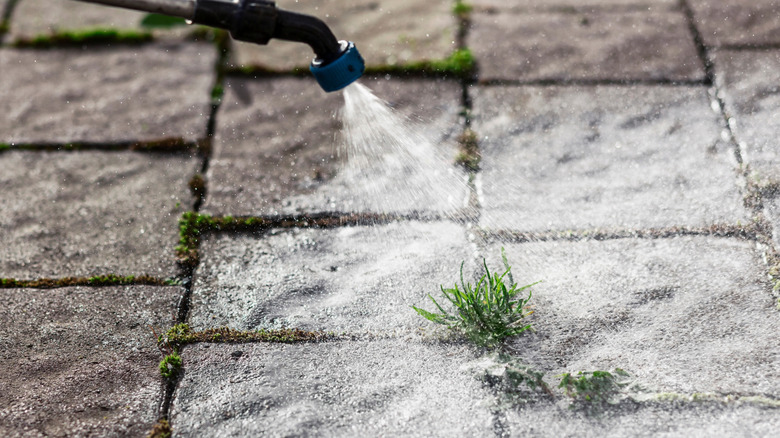Considering A Brick Paver Driveway? There's One Nasty Issue You Didn't Think About
While brick paver driveways sure are gorgeous, they come with a unique problem you may want to consider before choosing this driveway design: weeds. Yep, those pervasive plants are well known to wreak havoc on brick driveways. As they sprout up, they ruin the bricks' otherwise elegant and classical appeal, which can quickly turn an eye-catching driveway into an unkempt eyesore.
Though at first glance it looks like the weeds are coming up from the ground beneath your pavers, what's actually happening is that the seeds of various weeds are being blown into the pavers' gaps by the wind. Once there, the weeds will start to grow and then they can rapidly spread to other areas. Upon seeing these weeds, your first concern might be aesthetics. After all, no one likes the look of weeds sprouting between their pavers. However, there is a more serious issue — if left untreated, the persistent plants can also cause structural and permanent damage to your brick paver driveway.
Due to weed growth, these sort of driveways can require a lot of maintenance. So if you're thinking of installing one, you may want to know about the nasty issues that could face a paver option.
Why weeds love paver driveways
While you'd need to make a few common repairs for a concrete driveway or other slab driveways, brick pavers take the cake when it comes to dealing with weeds. They are seen most often with this style of driveway because of the many gaps between each paver. Weeds can easily get blown into these areas and grow, particularly benefiting from soil that's been trapped there. Not only do the gaps in pavers give the weeds needed space, but the moist, rich soil there also provides them with the perfect nutrients to grow.
Another factor that could contribute to a brick paver driveway weed issue is improper installation to begin with. If the base beneath your pavers was done poorly, it can leave even more open space that is susceptible to weeds while also allowing moisture to accumulate.
Ideally, a paver driveway should have a bed foundation of sand without any plastic under the pavers, and rainwater should be sloped away from the driveway to prevent any standing water accumulation. These poor conditions will create a perfect breeding ground for weeds and moss. This is why many people may prefer asphalt, gravel, or concrete driveways, which are less likely to have issues with weeds. However, if your heart is set on the classic brick paver driveway, there are options you can take to reduce or eliminate unwanted plant growth.
Prevention and treatment for weeds in your brick paver driveway
For optimal paver driveway health, it's best to start with prevention. If you're at the installation stage, use polymeric sand for your base. This is the best type of sand for pavers because when wet, it bonds to create a strong joint between each brick. This foundation can effectively keep weeds at bay. Polymeric sand can be purchased in a variety of different colors, so finding one you like can offer interesting exterior design choices. Then, be sure to regularly sweep your driveway — doing so can prevent any errant seeds from setting root between the cracks of your bricks.
If you do end up getting weeds on your brick paver driveway or already have some, you'll want to tackle them right away. Fortunately, there are a few different options. If there aren't many weeds, you can always pull them out by hand. If there are quite a few and you prefer a more eco-friendly choice, consider natural ways to kill weeds using baking soda and vinegar. Both can be used to successfully kill weeds coming up between your pavers.
When using baking soda, spray the weeds with water first so that it can stick better to the plants, then sprinkle all over. For vinegar, mix white vinegar, a cup of salt, and a couple of tablespoons of dish soap into a spray bottle. Simply spray the mixture on the weeds and then keep an eye on them. Sometimes, multiple applications may be needed. If all else fails, consider chemical-based weed killers and herbicides. Once you've gotten rid of the weeds, refill those cracks and gaps between your bricks with polymer sand to (hopefully) prevent any regrowth.


